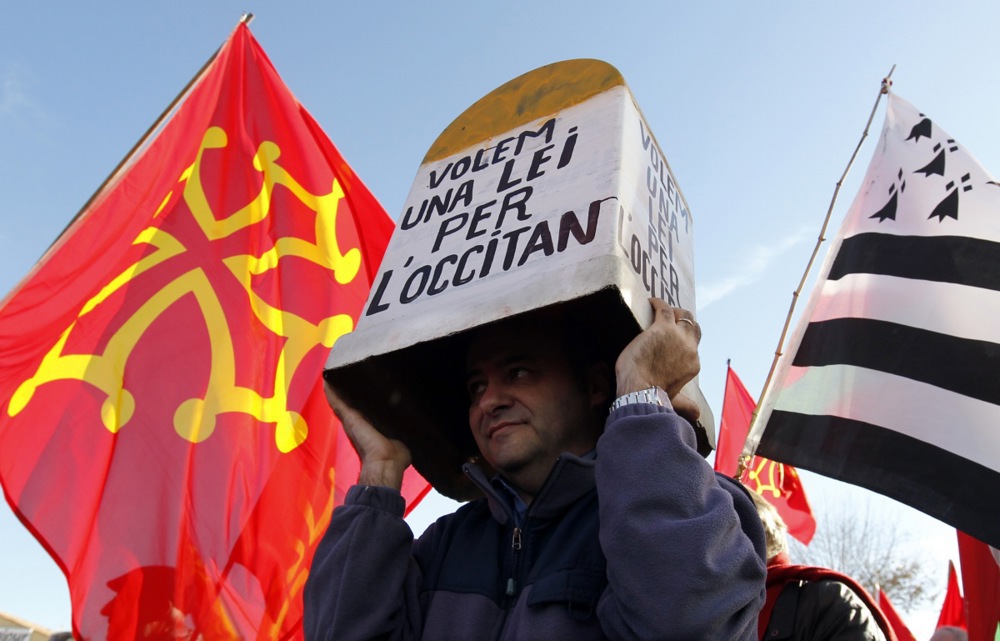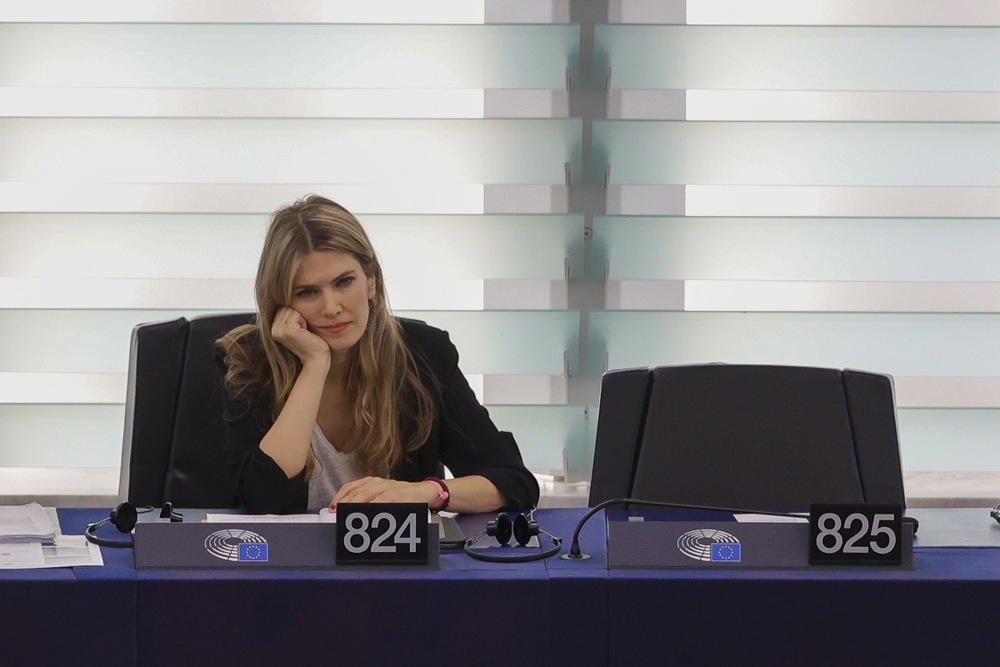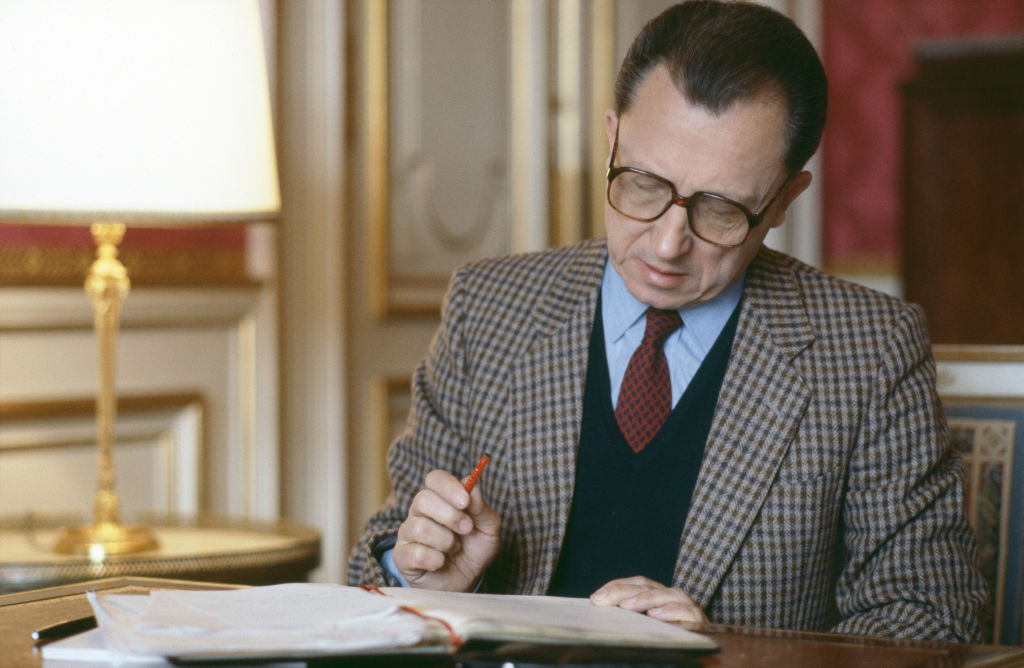The second-largest state in the European Union by population and economic power, founding member France remains one of the loudest players in European politics.
In Brussels circles, the joke has often been that, whereas Germany brings the bite, it is France that brings the bark.
The country will elect 81 MEPs this summer, meaning that more than one in 10 MEPs making up the 720-seat Parliament will come from France.
As such, the result of its EP elections in June look set to have a major impact on the future of European politics.

All against one, one against all
During the last EU election held in 2019, France’s political landscape was characterised by a three-way tussle among the Left, the Right, and the centre.
But the current scenario paints a starkly different picture. Polls indicate that President Emmanuel Macron’s star is waning. As is the star of his RENEW-aligned Renaissance party (formerly La République En Marche!) and the other smaller liberal parties within the French President’s governing coalition.
Running under a joint list for the Parliament elections, with RENEW group President Valerie Hayer leading the campaign, Macron’s centrists now have their work cut out for them when it comes to fighting off the surging political right.
While Renaissance previously competed fiercely with Marine Le Pen’s Rassemblement National for political dominance in the 2019 European Parliament election, recent polls show them trailing the nationalists by at least ten points, with the gap only appearing to grow with time.
Speaking to Brussels Signal, French journalist Sophie Bachat described Renaissance as being a middle-class party, saying that a vote for it was almost always “an urban vote by default”.
“There is a big gap between the provinces and Paris,” she explained.
Former French President François Hollande has advised his successor Emmanuel Macron to shut up and keep quiet when it comes to the war in Ukraine. https://t.co/uew59FEwVJ
— Brussels Signal (@brusselssignal) March 7, 2024
By contrast Rassemblement National has only seen its political fortune grow over time. A founding member of the European Parliament’s Identity and Democracy Group, the formerly fringe outfit now comfortably finds itself as the single most popular party in France.
The group looks particularly set for success this coming June, its decision to field 28-year old rising star Jordan Bardella as its lead candidate having so far yielded considerable dividends.
It is not RN’s first time on top. The party came first in the EP elections in 2019 with more than 23 per cent of the vote. 2024 looks set to see them win by an even bigger margin, with some polls predicting it could rake in up to 30 per cent of the national vote.
“RN is much more popular [in this election], Bache said. “Especially among farmers, for example”.
RN’s strong performance is all the more striking given it has new competition from the Right.
Marine Le Pen’s Rassemblement National (RN) has surged ahead in the French opinion polls ahead of the 2024 European Parliament elections. https://t.co/vPWMyWadNc
— Brussels Signal (@brusselssignal) October 18, 2023
The rest of the pack
Founded by firebrand political-pundit-turned-presidential-candidate Eric Zemmour, the relative political newcomer Reconquête! styles itself as being more “socially conservative” and “hard-line” on immigration than RN.
Such a message has seen mixed results, with the party currently floating around 5 per cent support nationally, with some suggesting that it is unlikely that the party will land any seats in June.
Reconquête! announced it was joining the European Conservatives and Reformists (ECR) group, and is set to be led into political battle by Marine Le Pen’s own niece, Marion Maréchal-Le Pen.
On the other side of the spectrum, there’s the Left(-overs).
Major players under this banner include Jean-Luc Mélenchon’s French hard-left La France Insoumise, affiliated with the Parliament’s more radical Left Group, and the relatively moderate Socialist Party, aligned with the S&D Group.
"What we have built is already destroyed!" — former left-wing French presidential candidate Jean-Luc Mélenchon claims the NUPES electoral alliance, aimed in part at combating the rising far-right, is "dead". https://t.co/60NSupOiM2
— Brussels Signal (@brusselssignal) December 1, 2023
Additionally, there is the “green” party, Les Écologistes, which according to current polling stands to be a big loser with numbers having hovered around eight per cent.
Hopes that these parties would run under a united list, Nupes, died last year when a series of controversies regarding alleged anti-Semitism, the October 7 Hamas attacks on Israel, and the subsequent war in Gaza pushed the groups apart.
This division is likely to diminish the prospects of smaller left-wing parties, which may have had a chance to surpass the threshold under a unified list.
Why watch?
As the EU’s second-biggest nation, how France swings will be a major factor in the post-election manoeuvres of the European Parliament.
The centrist Renew Group is viewed by many as being a political vehicle for Macron and his party, with Renaissance representing its single largest delegation.
The same goes for Le Pen and the Identity and Democracy Group. With Italy’s Lega party on the decline, the party may further enhance their influence inside ID.
Italian votes seem to swing in favour of Meloni’s Brothers of Italy, of the competing list of European Conservatives and Reformists (ECR).
Such a project may be muted by the growth of Germany’s Alternative für Deutschland (AfD) party with which, though technically a group ally, Le Pen has had frosty relations in recent months.
German non-profit news group Correctiv has apparently backtracked on its report about a “conspiratorial” AfD meeting where several politicians and others allegedly discussed the deportation of two million migrants from Germany. https://t.co/NY6To0rlI1
— Brussels Signal (@brusselssignal) January 29, 2024






